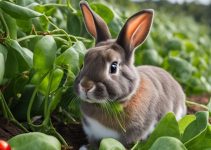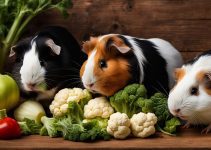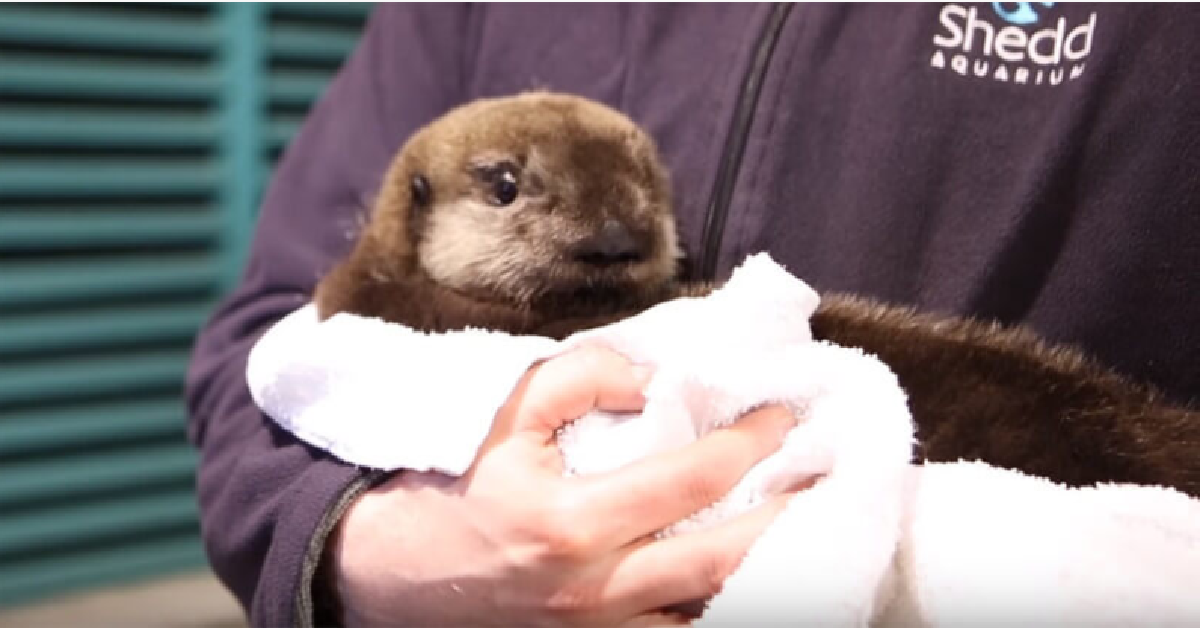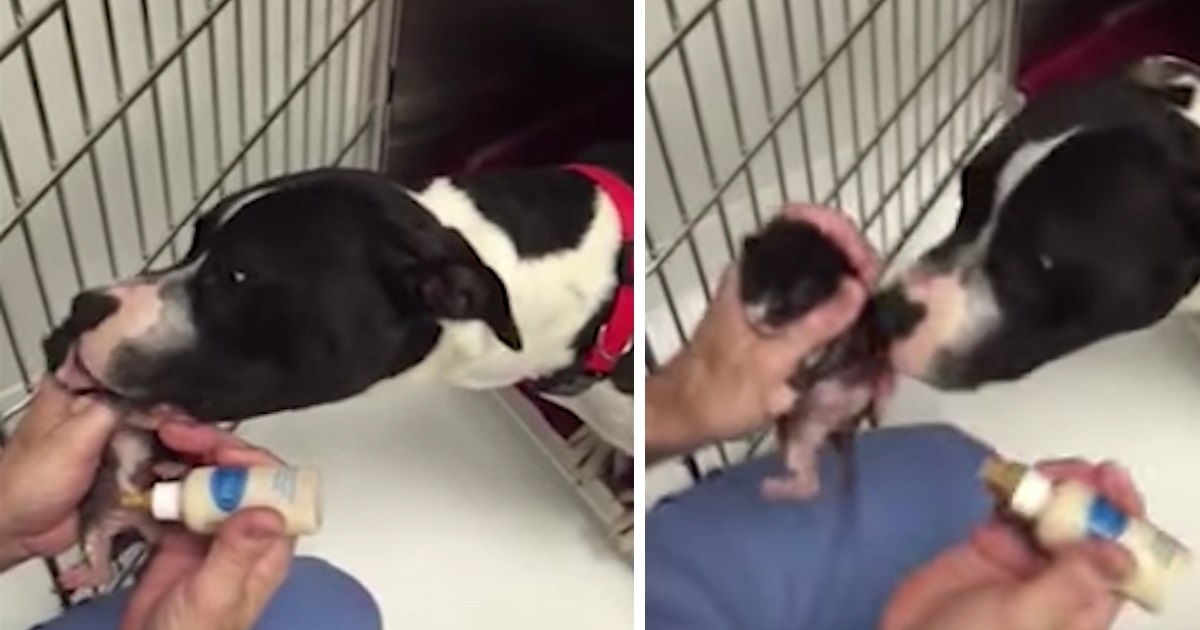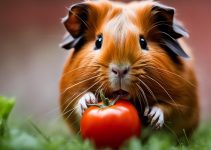Hello, I’m excited to share with you some valuable information about the diet of teacup pigs. It’s important to provide these adorable pets with the proper nutrition to ensure their health and well-being. In this guide, we will look at what teacup pigs should eat, how much they should eat, and what foods to avoid.
Teacup pigs are omnivores, which means their diet should consist of a variety of foods. The foundation of their diet should be commercially available, nutritionally balanced, pelleted chow specifically formulated for mini pigs. These pellets provide all the essential nutrients that teacup pigs need to thrive.
What Do Teacup Pigs Eat?
- Teacup pigs should primarily be fed commercially available, nutritionally balanced, pelleted chow formulated for mini pigs.
- Mini pigs can also be fed small amounts of fresh or frozen vegetables and fruits as supplemental food.
- Offering fresh hay and providing foraging toys or rooting stations can help satisfy their natural instincts.
- Avoid overfeeding or underfeeding teacup pigs, as both can have negative health consequences.
- Consult with a veterinarian for specific feeding recommendations if needed.
What Should Mini Pigs Eat?
When it comes to the diet of mini pigs, it is important to provide them with the right nutrition to support their health and well-being. The primary component of a mini pig’s diet should be commercially available, nutritionally balanced, pelleted chow specifically formulated for mini pigs. Brands such as Mazuri, Heartland, and Ross Mill Farm offer reputable mini pig diets that meet their dietary requirements.
For newborn piglets, they are typically bottle-fed with milk replacer and given starter food until they are about seven weeks old. Once they are weaned, they can be transitioned to solid food, which includes the pelleted chow mentioned earlier. It is essential to ensure that the piglets are receiving a balanced and appropriate diet during this crucial growth phase.
In addition to pellets, mini pigs can also be fed small amounts of vegetables and fruits. However, it is important to note that starchy vegetables should be limited, as they can lead to weight gain and digestive issues. It is recommended to offer fresh hay and untreated grass, as they provide dietary fiber and can help satisfy the pig’s natural foraging instincts.
Overall, a well-balanced diet consisting of commercially available mini pig chow, supplemented with appropriate amounts of vegetables, fruits, hay, and grass, can provide mini pigs with the necessary nutrients they need for optimal health and development.
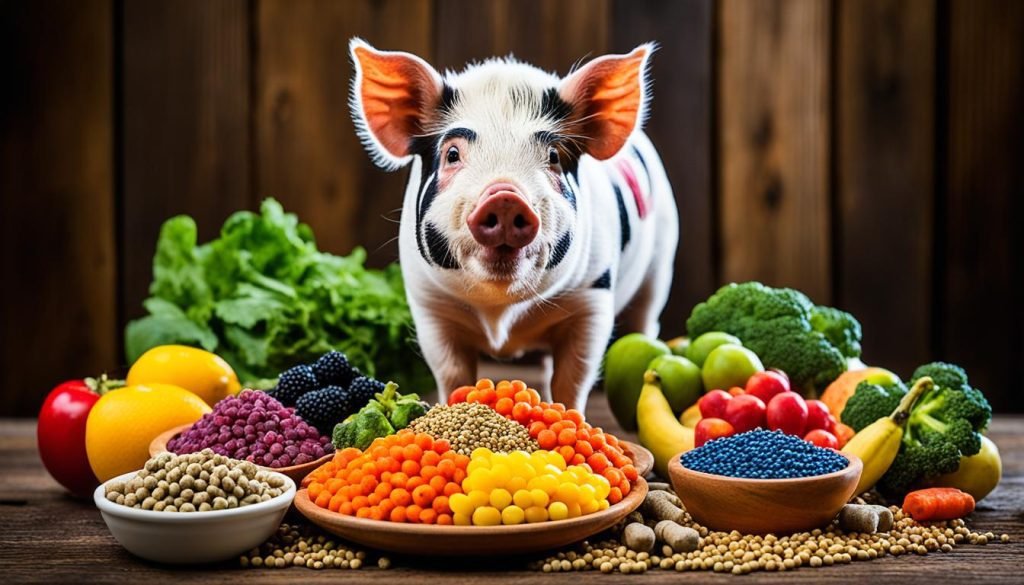
- Mini pigs should primarily be fed commercially available, nutritionally balanced, pelleted chow formulated for mini pigs.
- Brands such as Mazuri, Heartland, and Ross Mill Farm offer reputable mini pig diets.
- Newborn piglets are usually bottle-fed milk replacer and given starter food until about seven weeks of age.
- After weaning, they can be transitioned to solid food, including the pelleted chow.
- Mini pigs can be fed small amounts of vegetables and fruits, but starchy vegetables should be limited.
- Offering fresh hay and untreated grass can help increase dietary fiber.
How Much Should Mini Pigs Eat?
The amount of food to feed your mini pig depends on the brand of pellets you are using. As a general guideline, adult pigs should be fed a daily amount equivalent to approximately 2% of their body weight. This ensures they receive the necessary nutrients without being overfed or underfed.
It is crucial to adjust the serving size based on your pig’s shape and weight. Monitoring their shape, skin, eyes, and behavior can provide valuable insights into whether they are being fed the right amount.
Feeding mini pigs the appropriate portion size is vital for their overall health and well-being. Overfeeding can contribute to obesity and related health issues, while underfeeding can lead to malnutrition.
By carefully monitoring your mini pig’s weight and making adjustments accordingly, you can help ensure they receive the proper nutrition and maintain a healthy body condition.
What Foods Should Mini Pigs Avoid?
When it comes to feeding mini pigs, it’s important to be aware of the foods that can be harmful to their health. Here are some foods that mini pigs should avoid:
- Canned fruits or vegetables high in salt
- Commercial hog foods meant for rapid growth
- Salty foods
- Caffeine-containing items
- Large amounts of breakfast cereals
- Un-pitted stone fruits
- Un-shelled nuts
- Cat and dog foods high in protein
Feeding mini pigs these foods can lead to various health issues. Some may cause digestive problems, while others can be toxic to their system. It’s important to steer clear of these foods to ensure the well-being and longevity of your mini pig.
In addition to the mentioned foods, it’s also crucial to avoid feeding mini pigs foods that are high in calories, sugar, sodium, and carbs. These types of foods can lead to weight gain, which can further predispose mini pigs to obesity-related health problems.
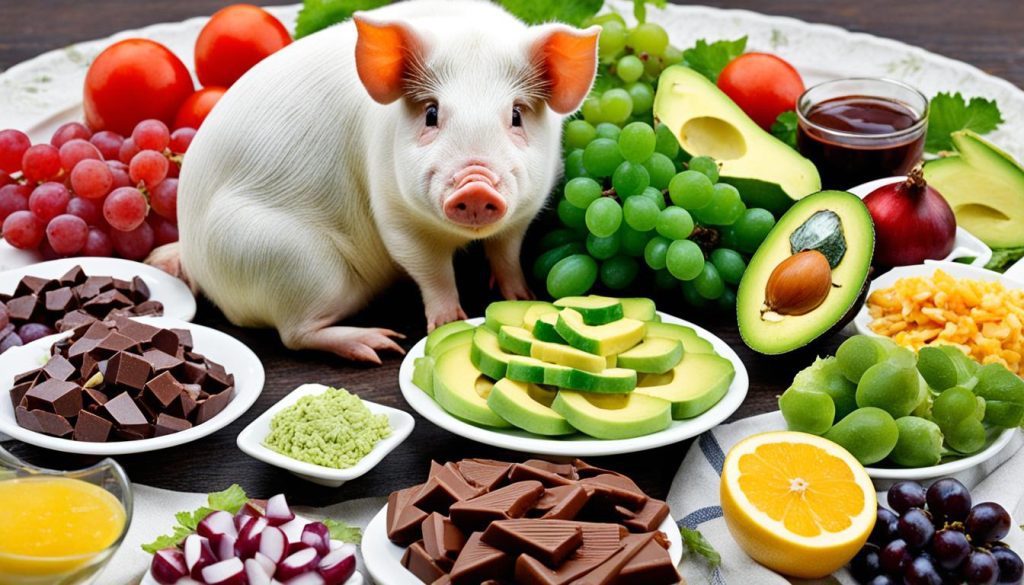
It’s always better to stick to a balanced diet that consists of nutritionally balanced pellets formulated specifically for mini pigs. Consulting with a veterinarian for specific dietary recommendations and avoiding these harmful foods will help keep your mini pig healthy, happy, and thriving.
Can Mini Pigs Have Treats?
Mini pigs can enjoy treats, but it’s important to offer them in moderation to maintain their health and prevent behavioral issues. Treats can be small pieces of succulent fruits or vegetables, providing both a tasty snack and a reward for training.
When selecting treats for your mini pig, opt for healthy options that are low in sugar and high in nutritional value. Fruits like apples, berries, and melons can be great choices, as well as vegetables like carrots and cucumbers. These treats can be chopped into small pieces to make them easier for your pig to eat.
Using treats as training rewards can be an effective way to reinforce positive behavior and teach commands to your mini pig. However, it’s important to be mindful of the quantity you give. Overfeeding treats can lead to demands for treats, aggression, and obesity.
If your pig starts showing signs of aggression around food or experiences excessive weight gain, it’s advisable to consult with a veterinarian for specific feeding recommendations.
Feeding Multiple Mini Pigs Together
Mini pigs can become aggressive when eating and may compete with each other for food. It is crucial to ensure that all pigs, especially the submissive ones, eat enough. Feeding pigs separately can help prevent aggression during mealtimes and ensure that all pigs receive the nutrition they need.
Fighting over food is common among pigs fed together, with the dominant pig usually consuming most of the meal. This can leave the submissive pigs hungry and malnourished. By feeding pigs separately, you can eliminate competition for food and ensure that each pig gets its fair share.
Separate feeding not only prevents aggression but also allows you to monitor the eating habits of each pig. You can ensure that all pigs are eating enough and adjusting their portion sizes accordingly. This is especially important for submissive pigs who may be reluctant to assert themselves during mealtime.
Feeding pigs individually also gives you the opportunity to assess the overall health and well-being of each pig. You can monitor their body condition, identify any signs of weight loss or gain, and make dietary adjustments as needed.
While it may require a bit more effort and time to feed mini pigs separately, it is well worth it to ensure the health and happiness of each pig. By providing an individual feeding environment, you can promote a harmonious and stress-free mealtime for all your mini pigs.
Conclusion
Proper nutrition is essential for the health and well-being of teacup pigs. To ensure a balanced diet, it is recommended to feed them commercially available, nutritionally balanced, pelleted chow formulated specifically for mini pigs. This base diet provides the necessary nutrients for their growth and development.
Supplementing their meals with fresh vegetables, fruits, and other healthy foods can add variety to their diet and provide additional vitamins and minerals. However, it is important to monitor their shape and weight to avoid overfeeding or underfeeding. Adjusting the feeding amount accordingly can help maintain their optimal health.
In addition to the food they eat, it is beneficial to provide teacup pigs with mental stimulation. Foraging toys or rooting stations can encourage natural behaviors and help keep them engaged. Feeding pigs separately, especially if there are multiple pigs, can prevent aggressive behavior during mealtime and ensure that each pig gets the nutrition they need.
By following these guidelines and providing a balanced diet, suitable supplements, and mental stimulation, you can help create a healthy and happy life for your teacup pig.


